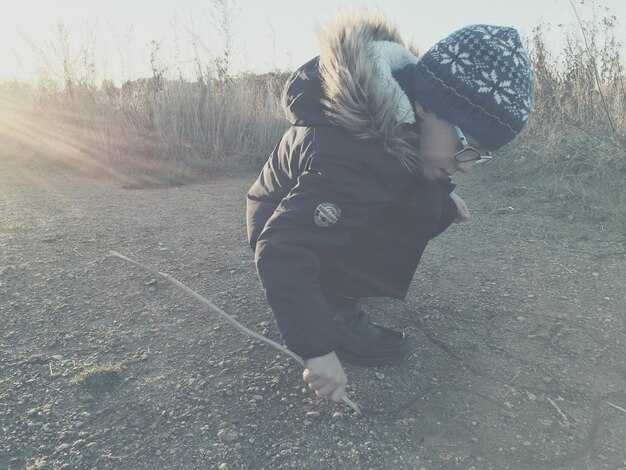If what you most deeply want is a steady, authentic love, honor that desire — it’s what you are meant to have. If you were raised with trauma, what often stands between you and that longing are shaky boundaries, unresolved wounds, and a scattering of half-formed relationships everywhere in your life. You can’t make space for genuine connection if your emotional life is cluttered; no one can really enter, and even if they do you may not see them clearly. Today’s letter comes from a woman I’ll call Maryanne, who writes, “Dear Anna, I have CPTTSD and a very disorganized attachment style.” I’m going to mark a few places I want to come back to. Maryanne continues, “I have a pattern: when I’m alone I feel vulnerable and desperate for partnership, but once I’m in a relationship my mind panics and I want to escape. It hurts. Can someone recover from this contradiction — craving a relationship and also being terrified of them? I also struggle to tell what’s acceptable and what isn’t in a partner. Can this be healed inside a relationship or only on my own? I’m sure you’ll say yes, you can heal, and you’re right — I know you will say that. But I’ve worked at this for a long time and I still keep repeating the same pattern in relationships. Maybe I’m a stubborn case. Can you help?” I will try. Maryanne goes on: “I’m 45, divorced for seven years after an eight-year marriage. I have two kids, 15 and 11, and I parent about 65% of the time while working full-time. It breaks my heart that I haven’t been able to model a stable, healthy partnership for my children. I’ve been in different kinds of therapy for roughly 20 years but I can’t seem to break this cycle. When I’m single I’ll tolerate almost anything to avoid the exposure of being alone — I also have no family to fall back on, so I get anxious, lose sleep, and spin through worst-case scenarios where I’d be utterly alone. Yet when I’m attached, alarm bells ring and I feel unsafe or convinced I won’t be happy; I start disliking the person, fantasizing about others, and my brain manufactures reasons to leave. I’ve had many chances with men and I almost always end things. I can’t tell what’s safe or worth working on versus what should be ended. I tend to blame myself: even if a partner messes up, I believe I’d have eventually made it fail anyway. Right now I’ve been dating a man for five months. He’s stable, a good father, we share interests, he communicates well, works on himself, and wants commitment. We don’t laugh much together though, and laughter in a relationship matters to me. He wanted to move faster than I did; I asked for a slow pace emotionally and physically, he said he understood, but then pushed sex on me early and strongly and I relented. He pushed to meet our kids before I was ready and I went along. After several upsetting incidents around these themes I raised my guard and have kept him at arm’s length. He’s trying to adapt, but I find it hard to lower my defenses. He’s more patient now, yet still presses to get his way — for instance, he’s assumed he’ll spend spring break with me and my kids without me inviting him; he just took time off and expects to join us. But I also know I tend to hold people at bay, so I’m trying to be mindful of my own patterns. I want someone who wants to learn and grow together, but I still feel the urge to leave even though I fear regretting it and being lonely. I feel like a failure for losing another relationship when I want to show stability to my kids. Previously I dated a man for a year and a half who never scared me — I was attracted to him, he made me laugh, and he respected my boundaries. Yet the relationship moved so slowly it didn’t seem like it would become a true partnership: we never spent a weekend together and he never attended a single event for my kids. There were also worries about communication, questionable drinking, and a ten-year age gap he hid online. Still, he was steady and calming and I liked him, but eventually I stopped hoping it would become what I wanted and I ended it. I also have a close friend who wants a committed partnership and marriage, which is my ideal. He’s close to me and my kids, coaches my son’s little league, and we genuinely enjoy each other. I’m afraid of a romantic relationship with him because he’s had some intense outbursts of anger and negativity in the past, which dysregulate and frighten me. He said those incidents were tied to a pain medication he used and that he quit and won’t go back, but my brain doesn’t believe problems like that just vanish — I grew up with alcoholism, rage, and abuse that never got better until the addict died. Indecision plagues many parts of my life, but here it’s the most painful. I don’t want to live in this indecisive, tense place forever. I want to feel settled in a safe relationship, married, happy, and healthy. I’ve talked to my therapist and a therapist friend, but I don’t think they fully get it; I suspect people without CPTTSD don’t understand. They say I just haven’t found the right person, but I think the problem is me and my disorganized attachment that I’ve tried and failed to heal. What can I do to stop this cycle and recover, Anna?” Okay Maryanne — here are a few opportunities I see for meaningful change. First, you already recognize your attachment as disorganized; do your therapists agree? If they interpret your struggles simply as not having met the right person, that might miss the attachment dynamics you described. Disorganized attachment tends to repeat itself until it’s addressed directly, and it requires therapists who truly understand attachment and can offer concrete tools to manage the impulses to dive in quickly and then pull away. I heard a lot in your letter about timing and boundaries — those are the places where you can make powerful shifts. You’re 45, parenting most of the time and working full-time, which is a lot to carry. The upside is that your kids are with their dad about 35% of the time — that gives you time to date away from them. I want you to set a firm rule: don’t bring someone you’re just dating into your children’s lives until you’re truly sure about them. The scenario of a five-month partner who assumes spring break with your kids is not the only way — you can protect your children from seeing a parade of adults come and go. Keep the people you’re unsure about out of your kids’ day-to-day experiences; you can manage the uncomfortable parts of dating on the side so the children aren’t exposed to instability. Also, you don’t have a family network to lean on, and I empathize — that’s a heavy burden. While a spouse can be an important support, friends are essential. You mentioned a therapist friend, but you need a friend network so your life isn’t dependent on one romantic partner. Good friends provide celebration, help in crises, and oxygen for romantic relationships so everything isn’t stacked onto a single person. You’ve been in therapy for about 20 years, and it feels like your attachment needs more hands-on, targeted work: therapy that focuses on boundaries, timing, and practical strategies for what to do when you feel rushed or overwhelmed in a relationship. I noticed you repeatedly entered relationships without clear standards and didn’t consistently assert your limits around pace and intimacy, which left you ending things more often than not. Regarding your current five-month relationship, here’s a concrete red line to try: no new partner meets your children, attends their events, or joins family vacations for at least a year. That’s a reasonable minimum to assess compatibility. Introducing people too soon teaches your kids to expect instability; waiting until you’re confident spares them that pattern. You also described this man pressuring you sexually and around family integration; how did you communicate when you wanted to slow things down? It’s understandable to struggle to resist someone who’s insistent, especially with a disorganized attachment style, but clear, pre-decided boundaries can help immensely. Decide in advance what your limits are around intimacy — three months, six months, a year, engagement — and hold to them. Many people who grew up with trauma use such rules to avoid attaching too quickly and thereby preserve more autonomy while getting to know a partner. Strong boundaries give you space to evaluate people without being swept into full attachment before you’re ready. That said, pressuring someone for sex isn’t acceptable; if you set a hard no and someone keeps pushing, that’s telling. You may need a therapist who will actively coach you in boundary-setting; if your current therapist can’t help you build and practice firm boundaries, consider finding one who does, because this is a problem with known interventions. Reading books on boundaries and practicing them in low-stakes situations can be very useful. Remember: you can’t be truly close to someone if there are no limits — you’ll either get consumed or stay closed-off. Be your own gatekeeper: date in order to discover whether someone is right for you, and only when you’re sure permit greater intimacy. About spring break: if it’s not appropriate for him to join, tell him clearly that you didn’t invite him and that it won’t work. If that upsets him, that might indicate incompatibility. It’s scary to assert these things, which is why having friends and supports matters. Kids are remarkably sensitive to tension; they notice stress between their parent and a partner even if you don’t say anything. Their nervous systems pick up on it, so preserving calm, confident boundaries benefits them as much as it does you. Being single is okay for your children and can be peaceful, even if lonely at times. Use the pockets of time you have to build a friend network or join a group — a 12-step community, a class, or a hobby — so you aren’t relying on a romantic partner for all of your emotional needs. Looking back at your previous relationships: the year-and-a-half partnership where you felt safe but stuck moving too slowly — it’s not wrong to date slowly as a divorced parent; a long timeline can be healthy because you get to learn enough about someone before bringing them into your family. A year and a half is not an unreasonable stretch to question progress, but if slower pacing means you never truly bond, that’s worth naming and making part of your decision-making. The man who misrepresented his age and had questionable drinking — misrepresenting age online is a red flag for honesty; drinking concerns also require direct attention. The friend with past anger outbursts who attributes them to a pain-related substance — that can be a partial explanation, but given your history with addiction and rage, it’s understandable your alarm bells ring. If you consider a serious commitment with someone who has a history of anger or substance-related behavior, couples therapy and direct conversations about those patterns and their management are reasonable steps. You said indecision is a general issue for you and it’s especially painful here; your friends and therapists who say you just haven’t met the right person may be missing how much attachment wounds shape your choices. If you believe you’ve walked away from good matches, that’s something you can work on. One practical approach is to clarify, in writing, what you want in a partner and in life. Give yourself permission to list many qualities and then sort them into “must-haves” and “nice-to-haves.” Decide non-negotiables (for example, no explosive anger, no sexual pressure) so you have clear red lines to guide your behavior. Knowing your criteria helps you advocate for yourself and decide when to pause and renegotiate or when to walk away. Another tool is a daily practice — a short writing ritual to empty anxious thoughts onto paper (fears you’ll never find someone, worries that you ruin things, resentment, confusion about spring break, etc.). Getting the chaos out of your head clarifies choices and restores a sense of agency: you can see options more clearly and feel more able to express yourself. Practicing honest expression, even when it risks upsetting someone, builds skill and courage. Over time you’ll become more graceful at it and speed up the process of leaving behind draining relationships and entering healthier possibilities. When you do speak up, let the chips fall: observe whether the person accepts who you are and what you require, and whether safety and mutuality form naturally. To summarize the concrete steps: strengthen and practice boundaries; cultivate friends and supports so romance isn’t everything; clarify and rank what you want in a partner; and adopt a daily practice (journaling or similar) to manage anxiety and boost agency. If your current therapist doesn’t help you do these things in a direct, practical way, consider someone with deeper attachment expertise. From what you describe, none of your partners has put you in immediate physical danger, which is good; they’ve also had positive qualities, so you have the advantage of attracting people who care. Use that to practice clearer boundaries and slower, more deliberative involvement. Finally, if childhood trauma is affecting your romantic life and you suspect self-sabotage or confusing impulses, there are common signs to look for; I have a list you can get for free. All you have to do is click right over there. I’ll see you very soon.














